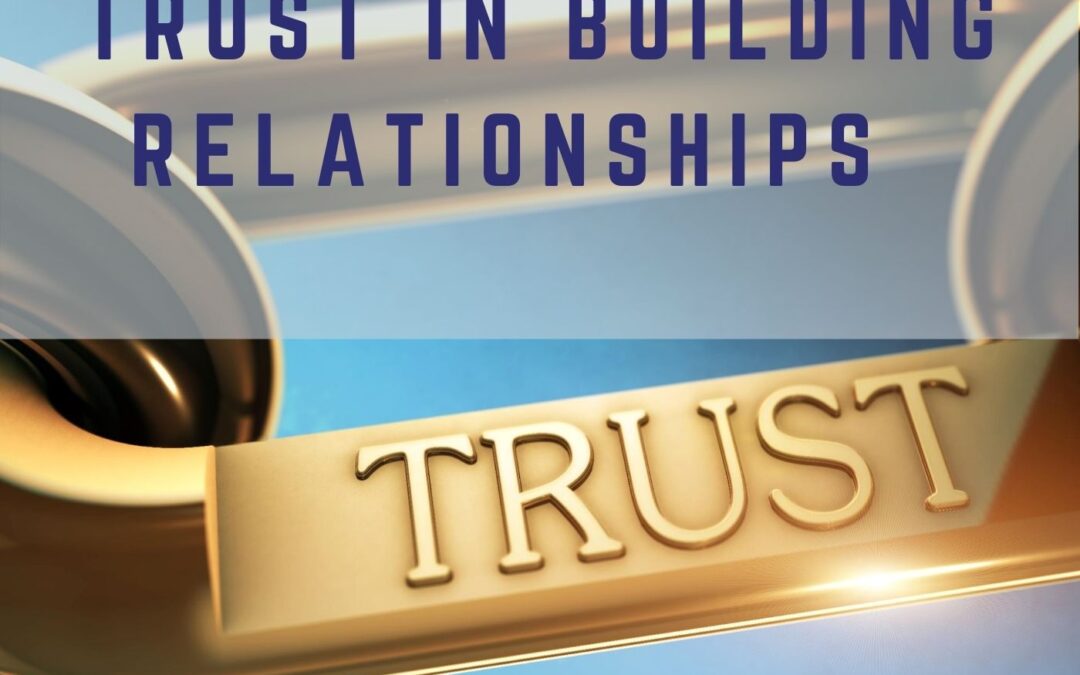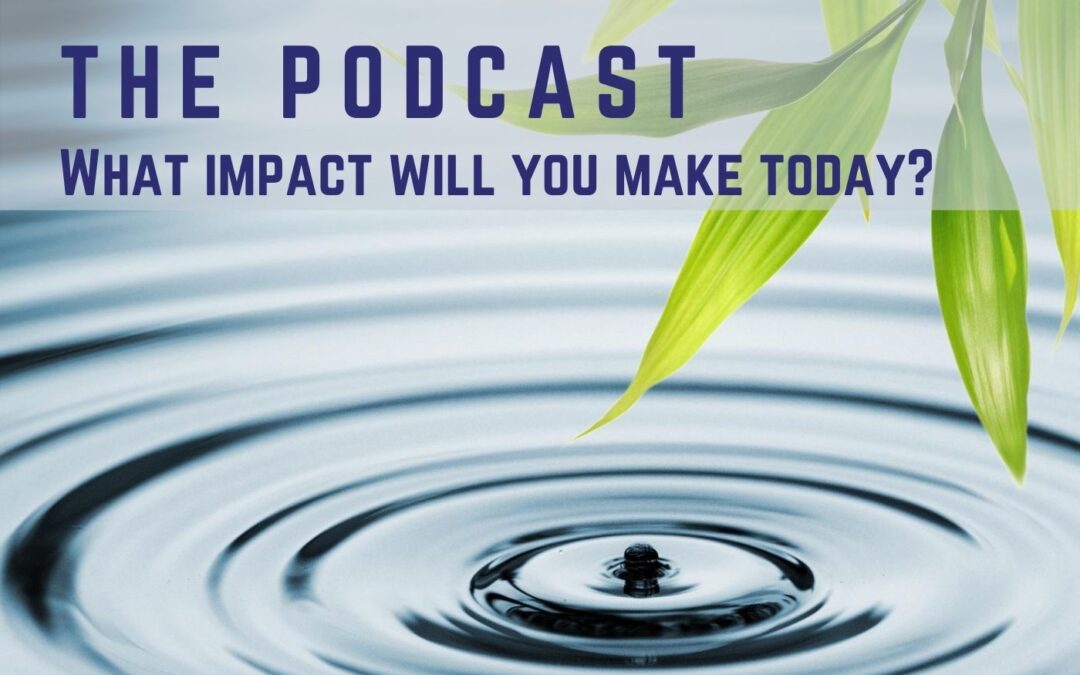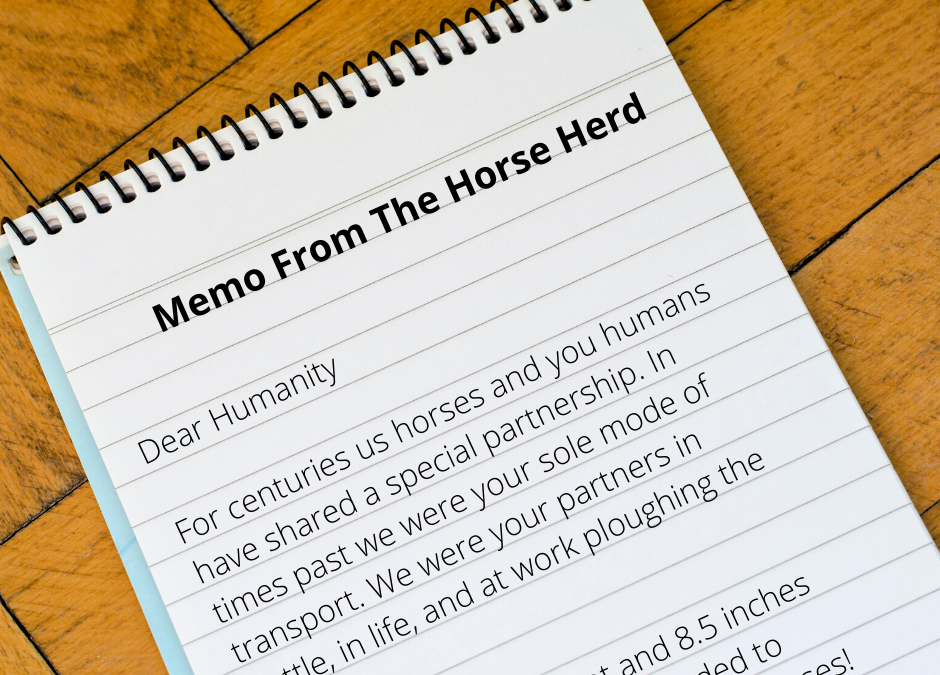
by Julia Felton | Aug 4, 2020
Business stakeholders—customers, investors, and team members—are now demanding more from the businesses they “work” with. Millennials and Gen Z want to know that the businesses they engage with have a social purpose and are behaving in a responsible manner. This societal accountability is changing the face of business and how leaders behave.
A number of recent surveys from McKinsey research have identified three traits that are becoming leadership imperatives to respond to this growing demand for social accountability.
Transparency
As consumers are more and more demanding that they see the provenance of items they purchase to ensure they align with their values, leaders are being forced to rethink their supply chain and the materials that they use. Especially as some two-thirds of consumers around the world say they would switch, avoid, or boycott brands for their stances on controversial issues.
Given that millennials will make up 75% of the buying population by 2025, and 52% of them say that they always research background information before buying goods or services—compared with 45% of Generation X consumers and 41% of baby boomers—the onus on leaders to pay attention to the ripple effect their business is creating is significant.
One way some companies are seeking to be more transparent is by adopting B-corp status. In order to become a B-corp, a company must pass an assessment that measures its impact on its employees, customers, community, and environment. Ben & Jerry’s and Patagonia are two such companies that have shifted to becoming B-corps in a bid to be more transparent and socially responsible in how they operate.
Cognitive Empathy
In 2015, the World Economic Forum predicted that emotional intelligence would be one of the top 10 skills demanded by employers by 2020. Emotional intelligence (EI) relates to qualities such as empathy and curiosity, the so-called traditional business soft skills that enable effective communication and relationship building.
However, it turns out that there is more than one type of empathy. Emotional empathy involves:
- feeling the same emotion as the other person
- feeling our own distress in response to their pain
- feeling compassion toward the other person
This is distinct from cognitive empathy, which seeks to recognise and understand another person’s emotional state. When leaders practice cognitive empathy, they practice taking the perspective of another person. In essence, you imagine what it might be like to actually be this person in their situation and put yourselves in their shoes.
For leaders to be socially accountable, it is essential that they practice this type of empathy, as it enables them to fully understand and appreciate the perspective of all their stakeholders so they are able to make better decisions, as they consider the holistic impact of what they are doing.
Purpose and Values Driven
Consumers are also demanding that business recognizes the impact it has on society and that it aligns the 3P’s—purpose, profit, and planet. No longer is it acceptable for CEO’s to focus on short-term gain to line their pockets. Rather, business leaders need to take a longer term approach, which means no longer being driven by the 90-day reporting cycles of the world’s stock markets.
In his new book The Infinite Game, Simon Sinek refers to these leaders as being infinite in their approach, as they understand that long-lasting success only occurs if they build long-term value for customers, which translates into healthy enduring for the business.
Salesforce CEO Marc Benioff is an example of an “infinite leader” who understands the importance of social accountability, as he always strives to ensure that the company lives up to its values of trust, innovation, equality, and customer service. “There will be times when prioritizing values, especially trust, will come at the expense of profits. In the short term, that is,” he is quoted as saying. “But the money your company makes in any given quarter will never be more valuable than the trust you stand to lose over time.”
What do you need to do to shape your leadership, so that it meets the needs of all stakeholders and recognises the social accountability that consumers now demand of business?
Julia Felton (aka The Business Wrangler) is the founder of Business HorsePower. Business leaders, entrepreneurs and executives hire her to accelerate their business performance by harnessing the energy of their people to work more collaboratively together. By aligning purpose with actions the team achieves exponential results as everyone starts pulling in the same direction.
Julia believes that business is a force for good and through designing purpose-driven businesses that leverage the laws of nature, and the herd, you can create businesses founded on the principles of connection, collaboration and community that make a significant impact in the world.

by Julia Felton | Jul 21, 2020
Disraeli said: “what we anticipate seldom occurs, what we least expect, generally occurs.”
That is the basis for this episode on our comfort zone.
Andrew and Julia discuss the comfort zone model. Quite simplistically, all of us have a comfort zone that is the area in which we feel safe and secure. And these are kind of the activities we do each and every day, and quite comfortable doing them then at the next time. level we have the growth of the learning zone.
But once we step out of our comfort zone, we move into the growth and learning zone.
And that’s where we are, we acquire new skills and we develop and effectively we expand. And then finally, on the outside ring, if you imagine this is kind of three concentric circles:
Inner ring is our comfort zone
The next ring is the learning zone
The outside ring is the fear zone
Show Notes:
Here are the highlights from this episode
- The Three Concentric Circles of the Comfort Zone (1:00)
- Using the horses to demonstrate (4:45)
- Being prepared for the unprepared (8:42)
- What gets you there wont keep you there (8:55)
- Physiological safety (9:33)
- Andrew’s training tips for public speaking (11:45)
- Confidence (12:42)
- Susan Hef quote 12:53
- Building fear quote (14:00)
- Hierarchy of needs (16:09)
- Being in the moment (18:34)
Julia Felton (aka The Business Wrangler) is the founder of Business HorsePower. Business leaders, entrepreneurs and executives hire her to accelerate their business performance by harnessing the energy of their people to work more collaboratively together. By aligning purpose with actions the team achieves exponential results as everyone starts pulling in the same direction.
Julia believes that business is a force for good and through designing purpose-driven businesses that leverage the laws of nature, and the herd, you can create businesses founded on the principles of connection, collaboration and community that make a significant impact in the world.

by Julia Felton | Jul 7, 2020
In the middle of this COVID pandemic, it is becoming apparent that trust is really important.
Julia starts by discussing the Edelman Barometer which measures trust usually on a yearly basis.
At the beginning of 2020, the Edelman barometer was showing trust at some of the lowest levels. And this is trust with governments, NGOs and businesses. At the start of the year society had higher levels of trust with business than with government organisations with the media not scoring high.
Trust has a magnetic quality and can make the difference in business.
A recent second Edelman survey in April during COVID-19 there was a reversal with businesses coming out worse on the trust scale and governments came out best.
Perhaps there is little bit of a paradox there maybe because we’ve been in a situation where people have been frightened of being under threat. We have looked to the government to make some decisions and so far the decisions have been pretty decent. And as a result, people are now beginning to trust the government that they could actually do something well, whereas businesses ironically, haven’t done such a great job and their trust levels have dropped. Julia and Andrew muse on whether it is because some people have had experience of poor leadership within the businesses they’ve been working for, and how those businesses have been dealing with furloughing employees etc.
Then they move on to discuss why it is important to have trust in yourself to build confidence in the decision making process. How to connect with people and build up trustworthiness.
As always horses play an important role in the work that the duo do and mention is made of the Trust Mirror mentioned in Julia’s book Unbridled Success linking back to the way horses think and drawing parallels.
Andrew recalls Gloria Barczak from Northeastern University, in the US. She talks about how teams , build trust. There are two ways the effective and the cognitive.
This leads on to building gravitas and why it is important and how to develop and use it.
Trust is such an important commodity that John Maxwell sees it as a bit of a piggy bank, putting money in the piggy bank, aka trust in the piggy bank. But break that trust and you just shatter everything. So that’s why we’re always talking about how it can take a long time to build trust but that it’s quick to break.
Which leads on to Patrick Lencioni and his Five Dysfunctions of a Team, the first thing is a lack of trust. And if there’s a lack of trust, then just everything breaks down.
One simple way to build and maintain trust in the workplace is the use of contracting so everyone understands what is required and when.
Finally it’s about sharing stories because we all relate to other people we build trust when we know more about our colleagues. If you are able to share some personal details or snippets about your life, it just makes you more relatable to other people. And then you’ve now got some shared experiences and when you’ve got those shared experiences, now you’ve got something to talk about. t’s a great way to build trust quite quickly.
Trustworthiness cannot be faked or copied. It’s the fundamental underpinning of everything in business and Andrew follows Janet Murray who talks about building trust and building client bases. People won’t buy from strangers; most people need at least seven or eight touch points before they then buy.
To conclude the duo quote from Stephen R. Covey’s book, The Speed Of Trust: ’without trust relationships and businesses falter.’
Which sums up so well this podcast episode. Without trust, there is no business there are no relationships with people, and everything is going to start struggling. Trust really underpins everything that we do.
Show Notes:
Here are the highlights from this episode
Julia Felton (aka The Business Wrangler) is the founder of Business HorsePower. Business leaders, entrepreneurs and executives hire her to accelerate their business performance by harnessing the energy of their people to work more collaboratively together. By aligning purpose with actions the team achieves exponential results as everyone starts pulling in the same direction.
Julia believes that business is a force for good and through designing purpose-driven businesses that leverage the laws of nature, and the herd, you can create businesses founded on the principles of connection, collaboration and community that make a significant impact in the world.

by Julia Felton | Jun 16, 2020
Have you ever thrown a pebble into a still pond or lake and caught the moment perfectly? By that, I mean as the pebble hits the water it creates a series of concentric circles that ripple out from the centre.
It is beautiful when you get it right and that’s what Julia and I call the ripple effect.
As we all go about our daily lives, whether it be at home or work, each and every one of us creates a ripple around us. And the thing is, most of us are pretty unaware of that.
We call it the impact ripple and it aligns with the imagery of the pebble causing all those ripples.
Now we have created the image in your mind, it is easy to see how it effects our relationships.
If we think about where the stone actually touches the water, that’s the effect of the ripple on ourselves. We are the centre and what we radiate out needs to be thought about from a leadership perspective.
Meaning we are impacting ourselves. If we extrapolate that to the next level, in a business sense with your teams, or your family, you are directly impacting the people directly around you and now we know we can think about the consequences both positive and negative as the potential of the cascade to influence our colleagues, customers, clients or suppliers, maybe even your shareholders, should not be underestimated.
In this podcast we discuss the importance of understanding your personal ripple, the emotions and how to adapt your leadership style by being self-aware about your personal style.
We consider what happens if you’re unaware of the impact you’re having and how it manifests itself, which could be a fall in productivity across your organisation.
It is about connecting and understanding the ripple and we then introduce what we can learn from the horses. They are perfect teachers.
Have you witnessed a boss that suddenly decides to walk the floor wreaking havoc causing a trail of negative emotions? In this podcast, we describe it as a wake and turn to the horses to demonstrate how leaders can improve their personal ripple effect by getting to know their self.
We then move on to talk about being in the present. What does that mean?
When a leader is in the space of being really present, that’s really important because it’s the space where one can really connect. The horses are very good at doing it as they live in the present moment. Horses don’t walk around wondering, oh, I wonder what happened yesterday or, you know, I wonder what I’m having for dinner tonight. They’re actually living right now in the present tense. So the first part of awareness for any leader, is really noticing and sensing how they’re feeling in that moment.
It comes down to instinct and gut feeling and knowing that once you are aware of how you are feeling and being really good at understanding the present, then you move into the next step.
That means we have to know how we communicate and show our gravitas and how to channel emotions.
When our clients come and work with the horses, they really get in to the present with the horse immediately.
Some maybe nervous but as Paul Ekman, an emotion researcher thinks, being self-aware is such a powerful skill to have and is influenced by the way we breathe and the horses powerfully demonstrate this. Another way of getting immediate feedback in the moment is the 360° feedback as well as doing a personal SWOT assessment.
Any nervous energy has to be channeled we consider techniques for breathing that will really help you as a leader. Julia explains how box breathing helps her.
We have to make sure that we remain confident, trustworthy and show we are in control. We discuss the need to build rapport and understand body language ensuring that if, in a Covid-19 world, we can’t use our hands to shape we use our eyes, we use smile, we use our heads. We look at how to break down the barriers that body language causes, such as having good eye contact – that’s vital. It’s building rapport.
By listening to the podcast we would ove you to walk away with today, knowing how to make a positive impact.
Do you know if you leaving people with a great impact – or are you leaving them with a negative one?
Show Notes:
Here are the highlights from this episode
- The Impact Ripple Concept – what is it? (1:04)
- How the impact ripple is felt on ourselves and in our organisations (1:32)
- The importance of understanding self-awareness (2:27)
- Impact of getting your gravitas right (3:43)
- The leadership wake concept (4:24)
- How to influence (5:25)
- How the horses help (7:00)
- The Awareness Wheel (7:36) Email us for a copy
- The importance of being present (8:00)
- Gut instinct and intuition (9:14)
- Being present with the horses (10:50)
- Who is Paul Eckman (11:28) https://www.paulekman.com/
- The importance of breathing (12:14)
Julia Felton (aka The Business Wrangler) is the founder of Business HorsePower. Business leaders, entrepreneurs and executives hire her to accelerate their business performance by harnessing the energy of their people to work more collaboratively together. By aligning purpose with actions the team achieves exponential results as everyone starts pulling in the same direction.
Julia believes that business is a force for good and through designing purpose-driven businesses that leverage the laws of nature, and the herd, you can create businesses founded on the principles of connection, collaboration and community that make a significant impact in the world.

by Julia Felton | Jun 2, 2020
Welcome to IMPACTFUL, the podcast. We are delighted to be here with you today.
Who is this podcast for?
This is your go to resource if you are a business owner, business leader, entrepreneur or executive who knows they want to make a real impact in the world and leave a positive legacy. It doesn’t matter if that dream is big or small – but we will encourage you to think big – everyone of us leaves an imprint on the world. What will yours be.?
What is it about?
In this podcast we will be sharing with you strategies and tactics to help you become the leader you have always wanted to be so you can make a real difference in the world. Each podcast will be full of actionable steps you can take and implement immediately.
We’ll also be interviewing guests to learn from them about their legacy and the impact they have been making in the world.
Who are your hosts?
I’m Julia Felton and I am the Founder of Business HorsePower. I’m passionate about igniting the possibility and hidden potential in 10,000 business owners, leaders and their teams. Through throwing away the rule book and challenging the status quo we create businesses that deliver impact and influence, whist also making a great income. Our business principles are based on the principles of nature and herd dynamics where collaboration, community and connection reign.
I’m Andrew Palmer and I’m the managing director of the gravitas matrix where I’m a communications coach, and I help business leaders and entrepreneurs scale up through the power of content creation, and presenting with confidence, authority and gravitas. By understanding audiences, identifying their needs, and modifying body language you really can become an influential leader.
We want you to discover that you can make a massive impact in the world whilst still creating a great income if you apply the laws of nature and the herd to building your business. In nature there is abundance and generosity. Everything is inter-connected and inter-dependent. Nature understands the principles of IMPACT.
Show Notes:
Here are the highlights from this episode:
- Impactful the Podcast what is it all about? 00:30)
- Julia Introduces herself (00:55)
- Andrew Introduces himself (1:31)
- Nature what the horses teach us about impact (2:10)
- What are we all about (2:40)
- Nine Essential Traits of being IMPACTFUL (3:40)
- System thinking (5:28)
- The Gravitas Matrix Model (6:15)
- Horses and rapport, listening and leading from front, middle and back (7:31)
- Empathy (10:31)
- Culture (10:45) www.nationalcentrefordiversity.com
- Emotional Intelligence identified as one of the top ten leadership skills (12:45)
- Why silence is golden (13:50)
- Reframing leadership (14:15)
Julia Felton (aka The Business Wrangler) is the founder of Business HorsePower. Business leaders, entrepreneurs and executives hire her to accelerate their business performance by harnessing the energy of their people to work more collaboratively together. By aligning purpose with actions the team achieves exponential results as everyone starts pulling in the same direction.
Julia believes that business is a force for good and through designing purpose-driven businesses that leverage the laws of nature, and the herd, you can create businesses founded on the principles of connection, collaboration and community that make a significant impact in the world.

by Julia Felton | May 30, 2020
There has been a lot written about the power of business having a purpose and how with a compelling purpose business can become a force for good, and yet many leaders I speak with really don’t fully comprehend what purpose is and why more than ever it is a pre-requisite for business survival.
Simply put the different between a vision (or mission) and purpose is emotion. Vision and mission statements are logical, they talk to the head part of the business. Purpose is emotional and talks to the heart of the business. So whilst vision or mission articulates goals and tactics for achieving those goals, purpose defines the essence of the business – why it exists, who it exists for and how it makes the a difference in the world.
And continuing using the metaphor of head and heart, whilst the head gets things done (20th century leadership) it is the heart that is essential to pump blood around the body, and so enable the head to operate. This is increasingly why we are seeing a paradigm shift in leadership and purposeful leaders know that the old control and command structures are not going to appeal and be successful in the more collaborative 21st century where people are seeking more purpose and contribution from their work.
A PURPOSE DRIVEN BUSINESS
Many might argue that it is a waste of time defining the company’s purpose because operating results have been fine up to now, and this is just another fad that is taking us away from delivering results. The problem is that the evidence is compelling as to why becoming a purpose driven business is essential for 21st century success. The benefits are not only commercial but also include improving the culture and the well-being of team members
JUST SOME OF THE BENEFITS INCLUDE:
- Customers Want It – 73% of consumers have stated they would change brands if a different brand of similar quality supported good causes
- Buyers Reward You – 80% of the general population would rather pay more for products and services produced ethically
- Employee Well-being – 88% of team members say they feel more fulfilled working for a business that is making a difference
- Increased Productivity – when team members are inspired by a compelling purpose they generate 225% more productivity than team members who are merely satisfied with their role
- Improved Retention and Employee Loyalty – team members who find their work rewarding and impactful report being 2.8 times more likely to stay with a company
- Easier Recruitment – 93% of employees want to work at a company that cares for them as an individual.
- Increased Revenue and Growth – in the past 3 years 85% of purpose driven companies showed positive growth whilst 42% of non-purpose led companies showed a drop in revenue.
CHANGING COMPANY CULTURE
So why wouldn’t a company want to become purpose led and help contribute to the triple bottom line of people, performance, planet? Because it’s tough. Creating a purpose driven culture demands time and resources. This is not some quick fix that can be rolled out and forgotten. Purpose needs to become imbued into the DNA of the company and impact everything that the business does. It’s not just some fancy words on the wall, but rather it demands a culture shift that helps foster an environment where people’s hidden potential can be unlocked. It helps team members understand why they work for the business and clearly articulates for them the contribution that they make. And of course for the purpose to survive the company must adopt behaviors that align with that purpose.
It is the leaders role to activate the purpose within the business and galvanize the team members to come along. Through their behaviors day in and out they help inspire and motivate the team and when they do the result is a highly engaged and productive workforce. Team member well-being improves as they feel more valued in the business and also because they understand the context in which the business is operating and how they contribute to this.
Creating a purpose driven culture really is a win-win for both the business results and the many business stakeholders, but implementing this is not for the feint of heart, and should not be undertaken without a solid commitment to see it through.
Julia Felton (aka The Business Wrangler) is the founder of Business HorsePower. Business leaders, entrepreneurs and executives hire her to accelerate their business performance by harnessing the energy of their people to work more collaboratively together. By aligning purpose with actions the team achieves exponential results as everyone starts pulling in the same direction.
Julia believes that business is a force for good and through designing purpose-driven businesses that leverage the laws of nature, and the herd, you can create businesses founded on the principles of connection, collaboration and community that make a significant impact in the world.

by Julia Felton | May 26, 2020
I don’t think anyone can dispute that now, more than ever, we need great leaders. People who can step up and show others the way. People who take charge, not in an overbearing way, but in a way that inspires others to follow. After all, you can’t be a leader unless others will follow you.
Leaders emerge in all shapes and sizes and from all ranks of the organization and society. Leadership is not something just reserved for the top bastion of an organization. It exists everywhere, and right now we are witnessing some great leadership and also some really poor leadership. I’ll leave you to decide which is which!
To help leaders navigate this situation, I have identified 7 characteristics they need to embody to be successful. These form the acronym LEADERS.
Leaderself
Great leaders understand that they need to look after themselves first, before they can look after others. It’s a classic case of putting your oxygen mask on first before helping others. For many leaders, this means indulging in self-care—which could include meditation, exercise, and eating and sleeping well. There is no one solution that fits everyone, but prioritizing your own well-being is paramount if you are to have the energy to inspire and motivate others.
Engaging
Leaders understand that they need to engage others. This is particularly true when so many team members are working remotely. Leaders need to spend time with these remote workers really understanding their needs and effectively communicating what is happening. During these times you can’t over-communicate—team members, customers and other stakeholders will only feel engaged if they know what is happening. And even if you don’t know what is happening, share that as well!
Adaptable
Being adaptable is a key attribute of a great leader. They are easily able to see the whole picture, recognize opportunities, and then pivot their resources to solve the challenge they have identified. There are plenty of examples of companies adapting to this change. For example, Brew Dog in the UK has pivoted to creating hand sanitizers rather than making beer.
Decisive
Great leaders are decisive. They make the difficult decisions that others won’t. Here in the UK, I think our Prime Minister, Boris Johnson, made some good decisions early on putting us into lockdown. Was it popular? No, it wasn’t—but undoubtedly his actions have saved many lives.
Empathy
A component of emotional intelligence, empathy is the ability to put yourself in someone else’s shoes. Great leaders understand that how they view the situation might be very different from their team members, and indeed everyone is experiencing this situation differently. Taking the time to really connect with team members and understand their concerns is paramount to being seen as a caring leader at this time.
Resilience
Mental toughness is a requirement for leaders at all times, but none more so than now. Being able to bounce back from adversity is imperative, as is being able to maintain a great state of mind. Being positive and encouraging inspires your team to want to follow up. Resilience enables leaders to stay focused and on track, despite everything else that is happening around them.
Solution Focused
One of the great things to come out of this pandemic is the high level of innovation that we have seen. Companies have changed their work routines literally overnight, as team members have had to start working from home. Other businesses—like Brew Dog—have redirected resources to help provide much needed hand sanitizer, whilst some car producers have pivoted to create ventilators. Restaurants have moved into the takeaway market. Product development has been speeded up. For example, James Dyson designed a ventilator in a matter of days rather than months.
No one doubts that this pandemic will totally transform the way that we operate business going forward, and I firmly believe that the leaders that display great leadership at this time are the ones that will enable their companies to survive in the long term. Team members and other stakeholders will remember how they have been treated, and I firmly expect them to vote with their feet, leaving companies where they have not been supported and cared for during these challenging times.
Julia Felton (aka The Business Wrangler) is the founder of Business HorsePower. Business leaders, entrepreneurs and executives hire her to accelerate their business performance by harnessing the energy of their people to work more collaboratively together. By aligning purpose with actions the team achieves exponential results as everyone starts pulling in the same direction.
Julia believes that business is a force for good and through designing purpose-driven businesses that leverage the laws of nature, and the herd, you can create businesses founded on the principles of connection, collaboration and community that make a significant impact in the world.

by Julia Felton | Apr 26, 2020
The COVID-19 pandemic has turned many businesses on their heads overnight, as people have had to adjust to remote working. Many industries that had been resisting allowing team members to work at home have, in a matter of a few days, had to pivot and adapt to this new norm.
For both team members and employers, there have been challenges to navigate along the way. Not least of all is that employers have had to trust that team members will do the work. For some companies that had resisted remote working up to this point, I know they had an inherent distrust in their team members and didn’t believe that the employees would do a full day’s work. Ironically, I often hear of exactly the opposite happening. Stuck at home with their families, some people are gravitating to work as a means of escape and so are working way more than the standard working week hours. I know my brother is one such person. It’s so easy to go back into this office after his kids have gone to bed and just check email again or finalise that report he was writing.
So, how do we find a happy medium—and how do all parties communicate effectively at this time? I’d like to propose the 5 E Framework as a model for helping navigate this change:
Embed The Purpose
Now, hopefully your organisation has a clear purpose that every team member understands. Purpose provides the raison d’etre for the business and, combined with company values, helps everyone have clarity on where the business is going. It provides the true north of what is expected and therefore can guide team members in how to prioritise their work and decision making, when there are no colleagues directly around.
Clear Expectations
When working remotely, it is essential that everyone is clear on what is expected of them. Know what the protocol is for answering emails and responding to messages, what the work hours are, etc. Many people I know feel that they have to respond immediately to every notification that pings on their computer, or else their boss won’t think they are working. This is foolhardy, as all these notifications distract us and, in fact, hamper our productivity. Remember the technology should be there to support you, not negatively disturb you.
Empower Team Members
When working remotely, it is even more important than ever to stop micro-managing your team members and empower them to get the job done. Give them a clear briefing; make sure they have understood the briefing, the deliverables, and the timeline; and then, let them get on with it. Continually checking in to see how they are getting on with the project will just demotivate and frustrate them.
Engage and Connect
In the absence of “water-cooler” chat and seeing colleagues face-to-face, it is important to check in with them and make sure they are okay. Everyone is reacting differently to these challenging situations—so, as a leader, spending time to really connect and find out what is going on for your team members, outside of work, is essential. It helps builds trust and connection, and demonstrates empathy.
Efficient Communication
Ensure that you communicate regularly with your team members when they are working remotely. In this time of rapid change, that might mean a daily check-in call for the team to make sure everyone is on the same page and has all the information they need. It’s amazing how much information you glean when working in an office, and how often people forget to communicate really important things when they don’t see the other person face-to-face. I was recently coaching a client, and her boss had forgotten to tell her the deadline had changed. It wasn’t malicious—it was just an oversight. So, regularly ensuring everyone is on the same page can mitigate this.
Effective virtual communication also means that you need to use the appropriate level of energy. As a leader, it is your job to inspire the team, and your energy and enthusiasm needs to be contagious at this time, in order to keep your virtual team motivated.
I’d love to hear about the lessons you’ve learnt about effective virtual communication at this time!
Julia Felton (aka The Business Wrangler) is the founder of Business HorsePower. Business leaders, entrepreneurs and executives hire her to accelerate their business performance by harnessing the energy of their people to work more collaboratively together. By aligning purpose with actions the team achieves exponential results as everyone starts pulling in the same direction.
Julia believes that business is a force for good and through designing purpose-driven businesses that leverage the laws of nature, and the herd, you can create businesses founded on the principles of connection, collaboration and community that make a significant impact in the world.

by Julia Felton | Apr 10, 2020
Dear Humanity
For centuries us horses and you humans have shared a special partnership. In times past we were your sole mode of transport. We were your partners in battle, in life, and at work ploughing the fields. The railroads are 4 foot and 8.5 inches wide as that is the width needed to accommodate the width of two horses! Our partnership has thrived since the beginning of time and we have worked harmoniously together until you designed those crazy motor vehicles.
With the car you literally sped up your life. You started charging about with little or no sense of purpose. You forgot to stop and pause. You became insular and disconnected from each other and eventually over the years your communication began to disintegrate as you lost the sense of unity, trust and collaboration.
We know that you humans are going through a tough time right now and we horses are here to help you return to your own innate state that you have all forgotten. Would you let our principles of living help guide you to re-connect, re-kindle renew and nourish your soul, as we help you align with the basic principles of nature and the Universe.
Let us share our wisdom of survival and how we have had to adapt to survive over millions of years. After all we’ve been on the planet for over 55 million years and you humans for around 6 million years.
Not since saber tooth tigers and woolly mammoths died out, have you ever been in the position of being the prey. Typically, you live daily as the predator creature on the planet. The coronavirus (COVID-19) is treating you as its prey. You can’t control it and it is impacting your daily lives. Some of you are scared, afraid and uncertain of what to do. No-one on the planet today has experienced a situation like this before, we understand. All our lives we have been prey animals, literally fighting for our lives on a daily, hourly and minute by minute basis, but it is this that has made us strong, powerful, adaptive and creative. We understand your fears and anxieties, so let us share with you the practices that help keep us safe.
- Stay Present, Aware and Grounded. Live in the moment. You never know what is round the corner so be grateful of what you have now.
- If Others Frustrate You, Say Your Piece and Go Back To Grazing. Now is not the time to hold grudges. By living in the moment and focusing on each second and minute you can’t stress about the past or the future.
- Care For Each Other: Look after your herd members and keep them safe. Foster community spirit, unity and harmony.
- Step Up and Play Your Part: In the herd we are all responsible for ensuring the safety of the group. If we don’t do our role we can put the safety of the herd of risk. That is why we are punished with exclusion from the herd. Believe us that this is a really scary place to be as you are alone and afraid for your safety. So co-operate with each other and listen to the guidance of your elders.
- Act With Integrity and Trust The Process: Know that this challenging time will pass and you’ll have the opportunity to design a different world, one more in harmony with nature.
- Know That We Trumps Me Any Day: Foster the spirit of the herd and know we are in this together and can only survive if we work together. Any self-serving behavior (hoarding of toilet paper!) will only serve to alienate each other.
- Slow Down, Be Grateful and Appreciate All You Have: Often you only appreciate things when you no longer have them. As horses we love to hang out together doing something and nothing but we observe you humans never stop. You’re always doing something. We invite you at this time to slow down and reflect. Remember everything in the Universe has a rhythm and this provides certainty. The sun rises and falls daily, the seasons change with regularity throughout the year yet humanity lives at full throttle, pedal to the metal day in day out, and then you flat line as your energy burns out. You’re not designed for this and whilst you know it you can’t seem to get off the treadmill. Use this as a time to make that switch.
- Remember We Are All Part Of The Ecology Of The Planet: We are all inter-connected and inter-dependent. The current crisis is showing you that most clearly. Everything you humans do has a ripple effect. Become aware of how your ripple impacts others because it does even if you’re not consciously aware of it.
Humanity, the coronavirus pandemic is providing you with the gift to wake up and become more aware of the rhythms of nature. For everyone who has been sleep walking your way through life, we urge you to enjoy being in the moment, to slow down and become more aware of your impact on others. We invite you to become more horse like!. Let us show you the principles of how to live in harmony and unity with each other and nature. Let us help you return to your roots and find your unbridled spirit.
We know you can do it. Will it be easy, no, but the results will be transformative and spectacular for all of us – humanity, the animals, plants and planet. Let us help you, our life-long partner navigate these challenging times. Leverage our wisdom to help you create your success and thrive once again.
To Your Unbridled Success
The Herd.
Julia Felton (aka The Business Wrangler) is the founder of Business HorsePower. Business leaders, entrepreneurs and executives hire her to accelerate their business performance by harnessing the energy of their people to work more collaboratively together. By aligning purpose with actions the team achieves exponential results as everyone starts pulling in the same direction.
Julia believes that business is a force for good and through designing purpose-driven businesses that leverage the laws of nature, and the herd, you can create businesses founded on the principles of connection, collaboration and community that make a significant impact in the world.

by Julia Felton | Mar 26, 2020
Many of you might have recently read or seen extracts from Simon Sinek’s new book on the Infinite Game. In it, he suggests that business leaders should stop focusing on short-term (finite) gains and instead focus on the long-term (infinite) game of the business. This is something I wholeheartedly agree with—but it’s nothing new as a concept.
When at school, I clearly remember learning about Japanese theory management and how, in Japan, people were more concerned with the long-term outcomes of what they did rather than the immediate short-term benefits. The challenge for leaders in the West today has become the fixation on short-term results. Public companies are measured by their 90 day success on the stock market. If the CEO fails to make the numbers, the stock price plummets. The result is that business leaders make decisions based on short-term success, rather than considering the longer-term consequences.
When leaders are always seeking to win the game, rather than acknowledge and appreciate that their decisions today have a ripple effect throughout society, the quality of their decision making can be significantly impaired.
That is why it was so heartening to see Paul Polman, former CEO of Unilever, stop publishing quarterly results back in 2010 and informing shareholders that “if they didn’t buy into this long-term value-creation model, which is equitable, which is shared, which is sustainable, then don’t put your money in our company.” Curiously, over the decade that Polman was at the helm, Unilever’s shareholder return has significantly outperformed the FTSE index. What Polman clearly understood was that if you are kind to the planet and the communities in which you operate, that long-term success is inevitable.
So, what exactly are the differences between a finite and infinite approach to business and life? In his book Finite and Infinite Games, the author James Carse identifies the difference as being:
- Finite games have a start and finish. They are played within a boundary. There are rules that shape the play on the field, and whoever is the most powerful at the end of the game wins.
In contrast:
- Infinite games are ongoing. There is no start and no finish. Once you enter an infinite game, the critical asset is endurance and resilience.
What can we learn from nature about having an infinite mindset?
Nature is always playing an infinite game—after all, it has been around for 3.8 billion years. In nature, if you don’t play the game and adapt, you die. Which is why we see so many species that have endured over time simply by adapting to the changing environments in which they find themselves. Contrast this with the abject failure of household brands such as Nokia, BlockBuster, and Kodak—all companies that failed to realise they were playing a long-term game, and so steadfastly resolved not to change and innovate as the environment and changing landscape shifted.
For leaders, really understanding that work is infinite can massively change your perspective on things. Just imagine, if you really appreciated that business was an infinite game, you would stop saying things like: “If I just stay late I’ll get caught up” (we all know that never happens!) or “If I just sacrifice seeing my kid’s event this evening, I’ll be in a better position for work tomorrow.” When we focus on work and business being an infinite game, we realise that it will never stop, there will always be something to do, a pivot to make, a promotion to plan.
The work will never stop—however, as leaders, what we can control is how we respond to this.
When leaders recognise that work is continually evolving (just like nature) and their job is just to harness and direct it in order to get the best overall outcome, it brings a degree of flexibility and freedom to the role. With an infinite mindset, leaders can build stronger, more innovative, more inspiring organisations that are committed to bringing meaning and contribution to their lives.
One of the first steps in creating an infinite business is to create a compelling purpose and vision, something that will make a real difference in the world and which will drive you forward on a daily basis.
Julia Felton (aka The Business Wrangler) is the founder of Business HorsePower. Business leaders, entrepreneurs and executives hire her to accelerate their business performance by harnessing the energy of their people to work more collaboratively together. By aligning purpose with actions the team achieves exponential results as everyone starts pulling in the same direction.
Julia believes that business is a force for good and through designing purpose-driven businesses that leverage the laws of nature, and the herd, you can create businesses founded on the principles of connection, collaboration and community that make a significant impact in the world.
















